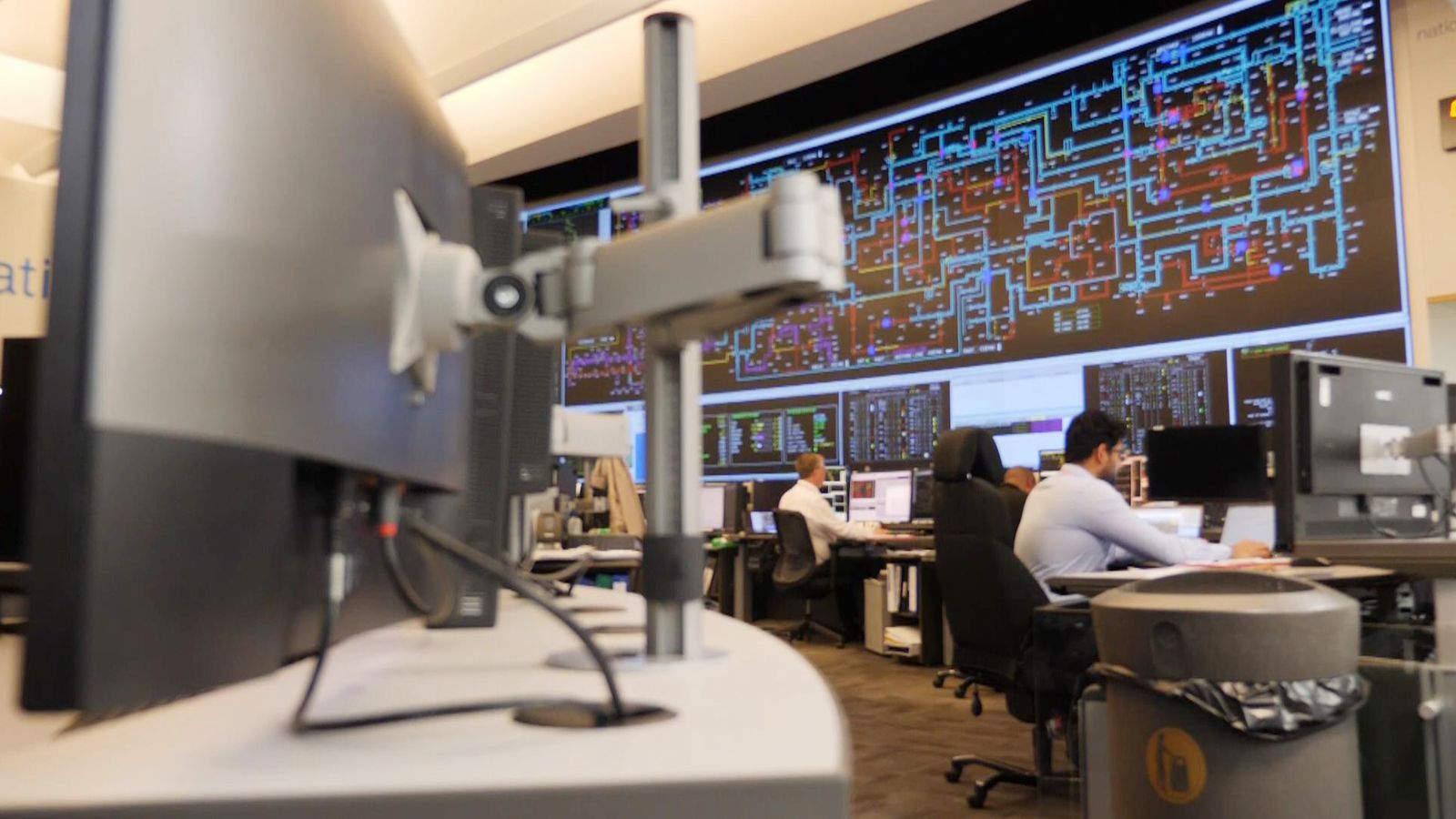Crackdown on ‘zombie’ energy projects blocking National Grid to end squeeze on Britain’s power supply

The National Grid Electricity System Operator has said it will kick energy projects out of the queue to connect to the grid if they aren’t progressing fast enough.
The move is part of an urgent push to clear a backlog caused by slow-moving projects snarling up the first-come-first-served system.
This has meant that some renewable power generators are now facing a wait of 10 years or more to actually start supplying clean electricity to the grid, despite many being ready to do so.
In an interview with Sky News, National Grid ESO director of corporate affairs Jake Rigg said that a modernised grid management system is critical for the future of the country “both in terms of decarbonisation and climate change, but also in terms of energy security”.
“We think we need these reforms in place… we haven’t got time now to wait around.
“The more renewables that we can have on the system, the more efficiently we can manage them connecting into the system, that will bring, in the long term, bills down because renewables are significantly cheaper forms of generation than the more conventional [fossil fuel] plants.”
Please use Chrome browser for a more accessible video player
2:15
The end of the fossil fuel age?
Under the National Grid plan, energy project developers will be asked to demonstrate they are making progress on raising finance, buying land, getting planning permission, and breaking ground.
If they cannot, they will be asked to move back in the queue, or leave it all together to make space for more efficiently managed projects.
In a statement, the ESO said: “To illustrate the scale of the connections challenge, there are approximately 220 projects due to connect to the national transmission system before 2026, totalling circa 40GW – this equates to more than double peak demand in the summer months for all of Great Britain.
Advertisement
“However, only half of these have got planning consent at this stage and some have moved their connection dates back by over 14 years.”
The energy regulator Ofgem, which is working with National Grid to improve the complicated web of regulations governing energy provision in this country, recently criticised the delays.
Ofgem chief executive Jonathan Brearley described them as “unacceptable”, citing a “legacy of stalled, unviable and often highly speculative ‘zombie’ projects blocking ready-to-go solar, wind and other renewable schemes stuck behind them”.
The issue is increasingly urgent.
The government has promised to completely decarbonise power in the UK by 2035, requiring a massive expansion in renewable energy, battery storage facilities, and nuclear power.
And as more people switch to electric cars and heat pumps for homes, the government has estimated that demand for electricity could double by 2035.
Please use Chrome browser for a more accessible video player
2:45
Controversy over UK net-zero goals
Harmony Energy is a solar, wind and battery storage facilities developer.
Chief executive Peter Kavanagh told Sky News that he currently has two projects that are almost finished but will not be able to connect until 2033.
He said the industry had outpaced the infrastructure that supports it.
“A lot more needs to be invested in the networks, because we’ve moved from a centralised power system to a much more decentralised power system, so that’s going from having very large power stations on the grid to having multiple smaller generators on the grid and the grid needs to move to enable that,” he said. “It’s absolutely critical.”
Read more:
England ‘not ready’ for extreme heat this summer
Greta Thunberg is returning to Scotland
England cricket team bus blocked by Just Stop Oil protesters
Click to subscribe to ClimateCast with Tom Heap wherever you get your podcasts
Emma Pinchbeck, chief executive of Energy UK, a trade association for the energy industry, welcomed the National Grid’s plans.
But she warned that much is at stake if the next government does not help to support progress, like investing tens of billions in physically upgrading the grid to enable it to cope with the growing supply and demand for electricity.
She said: “I know from meeting ministers, from talking to politicians of all colours, that they really understand that grid and planning and regulation is a barrier now and they also understand, because it’s true, that net zero is a massive economic opportunity.
“There’s global competition for the companies we have in the UK, and the technologies we have in the UK, and if they don’t sort this out, this government and the next government will suffer economically from not having done it because we’ll lose the investment and the technologies of the future.”